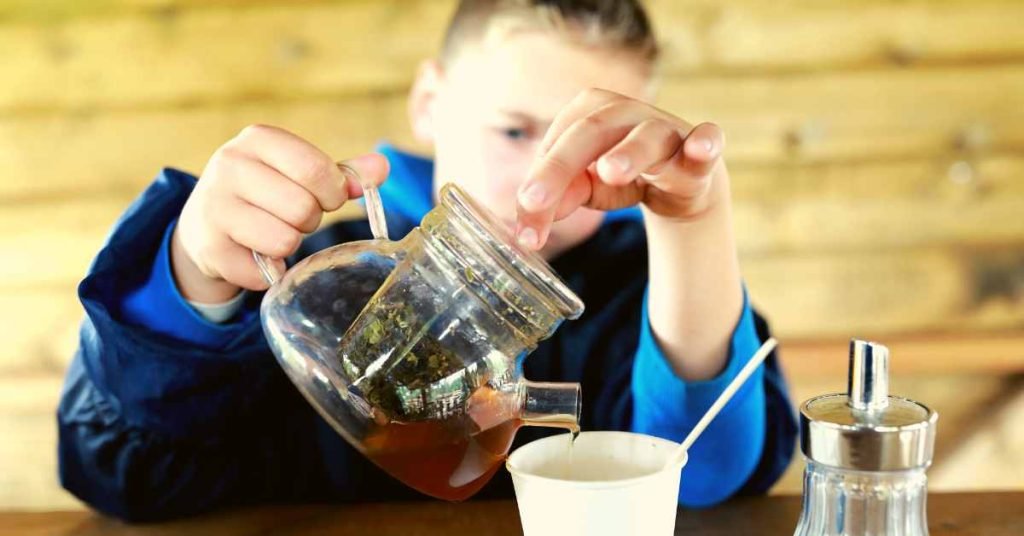Anxiety disorders in children have become increasingly prevalent in today’s fast-paced, high-stress world. These conditions can significantly affect a child’s well-being, social development, and academic performance.
While professional treatment and counseling are essential components of managing childhood anxiety, there are complementary and holistic approaches that can aid in alleviating symptoms.
In this article, we will explore how tea, with its calming and soothing properties, can be a valuable addition to the toolkit for managing anxiety disorders in children.
Understanding Childhood Anxiety Disorders

Anxiety disorders in children encompass a range of conditions, including generalized anxiety disorder, social anxiety disorder, separation anxiety disorder, specific phobias, and panic disorder.
These disorders are characterized by excessive worry, fear, or anxiety, often out of proportion to the situation.
Common symptoms in children may include restlessness, irritability, muscle tension, difficulty concentrating, and sleep disturbances. The onset of anxiety disorders in childhood can lead to lifelong challenges if not addressed effectively.
It’s important to note that while tea can be a supportive aid in managing anxiety disorders in children, it should never replace professional medical assessment and treatment.
Proper diagnosis and guidance from healthcare providers are crucial. Tea can serve as a complementary strategy to promote relaxation, emotional well-being, and self-soothing in children dealing with anxiety disorders.
Calming Ritual and Routine
Tea consumption often involves a calming ritual and routine. The act of brewing, pouring, and sipping a cup of tea can be a meditative experience that promotes relaxation and mindfulness.
Establishing a tea-drinking routine can help children create a sense of predictability and security in their daily lives, which can be particularly beneficial for those with anxiety disorders.
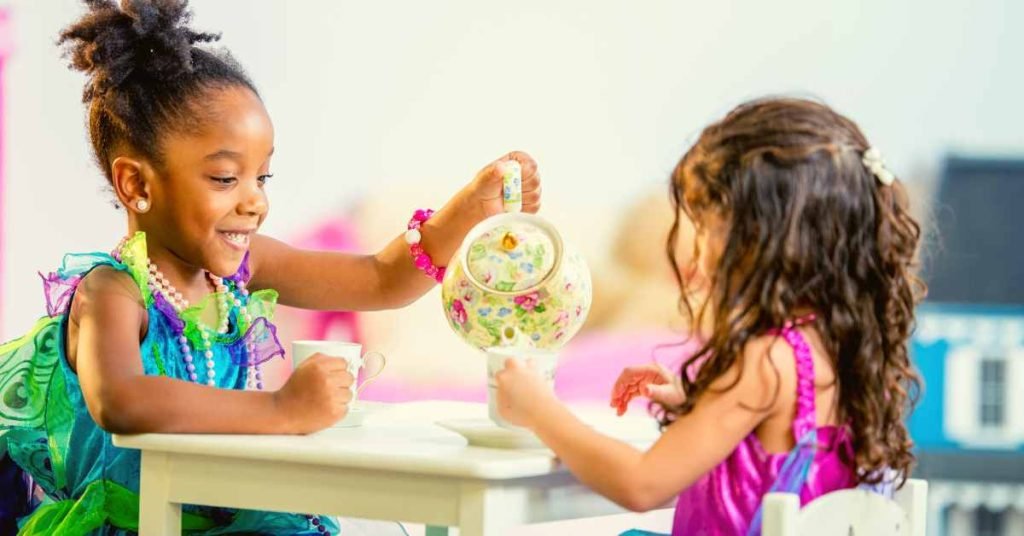
Choosing caffeine-free herbal teas like chamomile, lavender, or lemon balm provides a soothing sensory experience for children.
These teas have gentle flavors and aromas that can induce feelings of comfort and security, reinforcing the power of routine as a tool for managing anxiety.
Reducing Stress and Anxiety
One of the most immediate benefits of tea for children with anxiety disorders is its potential to reduce stress and anxiety. Tea, especially herbal varieties, can have a calming effect on the nervous system.
Chamomile tea, for instance, contains apigenin, a compound that binds to receptors in the brain, reducing anxiety and promoting relaxation.
Lavender tea is another option with natural sedative properties. It can help alleviate stress and anxiety, allowing children to unwind and ease the tension associated with anxiety disorders.
By incorporating these teas into their daily routine, children can have a comforting and relaxing tool for managing stress and anxiety.
Supporting Quality Sleep

Sleep disturbances are common in children with anxiety disorders, and insufficient sleep can exacerbate their symptoms.
Herbal teas like chamomile, valerian root, and passionflower are renowned for their sleep-inducing properties and can help promote restful sleep.
Chamomile tea, in particular, has been used for generations as a natural remedy for sleep disorders.
It contains compounds that can relax the muscles and soothe the mind, making it easier for children to fall asleep and stay asleep.
Valerian root and passionflower teas also have sedative effects that can contribute to better sleep quality.
Cognitive Function and Concentration
Anxiety disorders can affect a child’s ability to concentrate and focus, which can impact their academic performance and overall well-being.
Some teas, such as green tea and ginkgo biloba, contain compounds that have been associated with improved cognitive function.
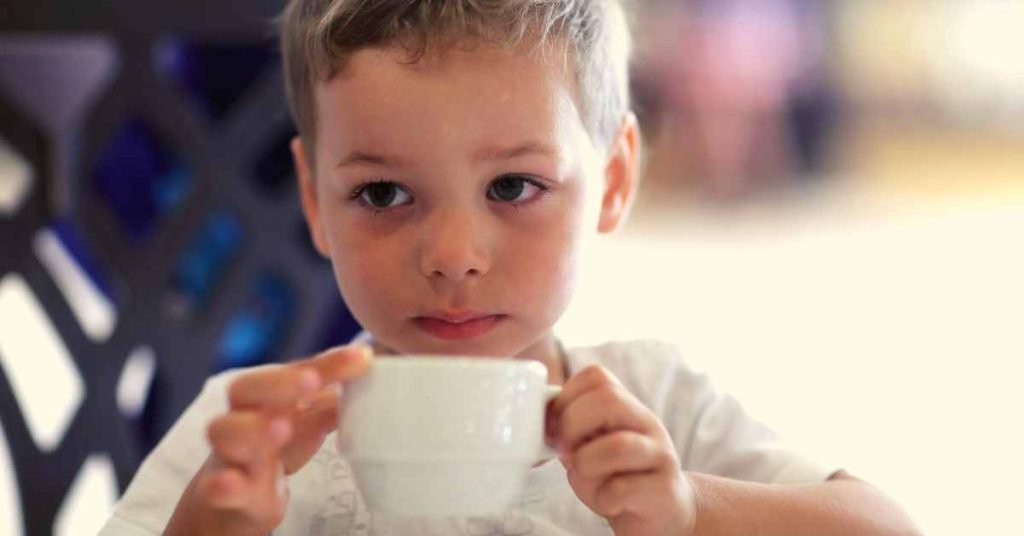
Green tea is rich in antioxidants, including catechins, which can enhance memory and cognitive performance.
Ginkgo biloba tea may improve blood circulation to the brain, potentially enhancing concentration and cognitive abilities.
For children with anxiety disorders who struggle with concentration, incorporating these teas into their routine may provide cognitive benefits.
Promoting Digestive Health
Anxiety disorders can manifest physically, leading to gastrointestinal symptoms like stomachaches and nausea in children. Herbal teas like ginger, peppermint, and fennel can help soothe digestive discomfort and reduce the physical symptoms of anxiety.
Ginger tea contains compounds that can relax the gastrointestinal muscles and alleviate nausea. Peppermint tea has a calming effect on the stomach and can reduce abdominal discomfort. Fennel tea is known for its digestive properties and may help alleviate gas and bloating. By addressing the physical symptoms of anxiety, these teas can contribute to overall well-being.
Building Coping Mechanisms
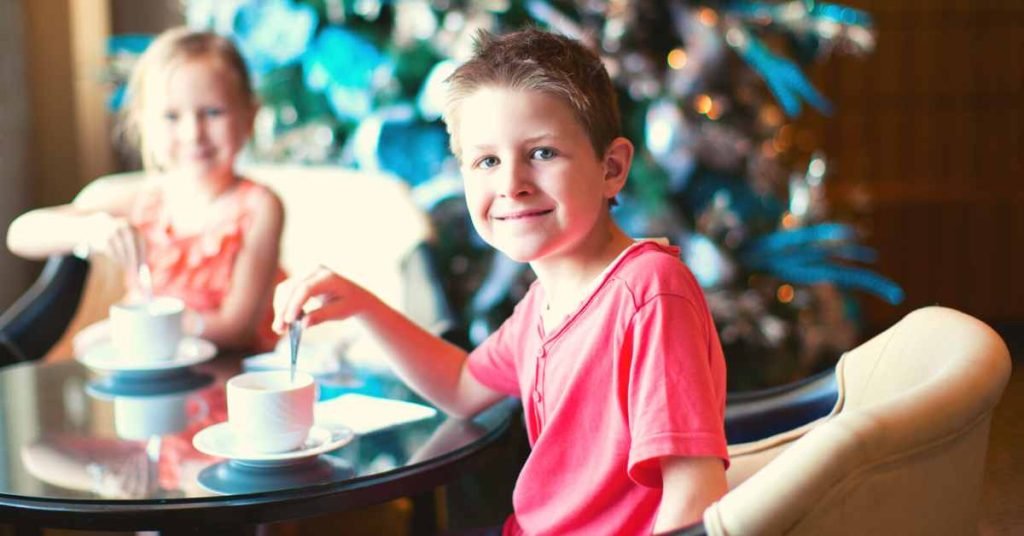
Tea consumption can be a valuable tool for teaching children healthy coping mechanisms.
When children engage in a calming tea ritual, they learn to manage their emotions and stress constructively.
This skill can be particularly useful for children with anxiety disorders, helping them build resilience and adaptability in the face of life’s challenges.
By introducing tea as a part of their routine, children can develop a proactive approach to self-soothing. They can turn to tea as a positive outlet for stress and anxiety, rather than resorting to less healthy coping mechanisms.
Parent-Child Bonding
Tea can serve as a bridge for meaningful parent-child bonding.
Preparing and sharing tea with children provides an opportunity for open communication and connection.
Parents can use tea time to talk to their children about their feelings, concerns, and experiences, creating a safe and supportive space for discussions about anxiety.
Parent-child bonding over a cup of tea can strengthen the emotional connection and trust between parents and children, which can be crucial for children with anxiety disorders.
A supportive and understanding family environment is essential in helping children manage their anxiety.
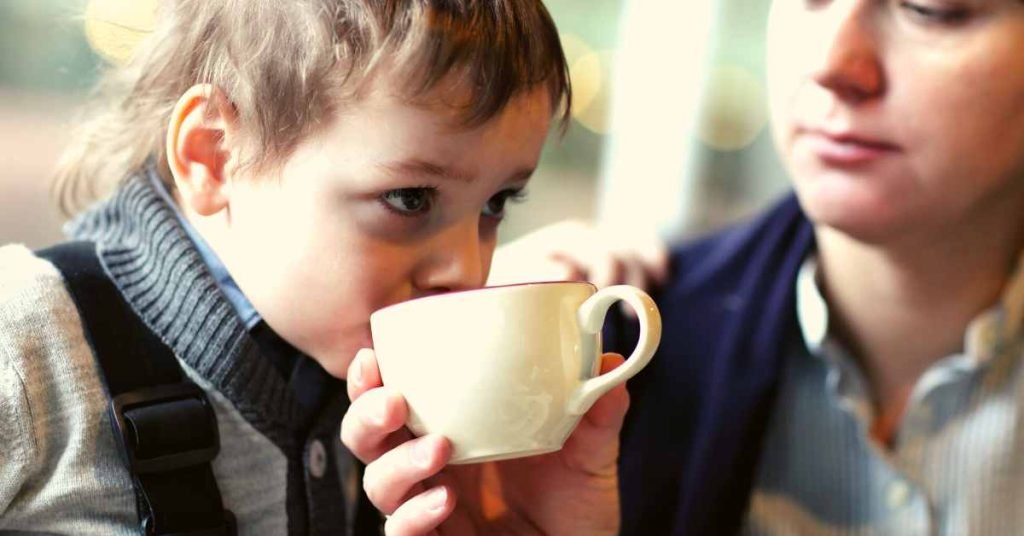
Final Word
Tea can be a gentle and effective addition to the holistic approach to managing anxiety disorders in children.
By promoting relaxation, reducing stress and anxiety, supporting quality sleep, and encouraging healthy coping mechanisms, tea can offer a sense of calm and comfort to children dealing with anxiety.
However, it is important to remember that tea is not a substitute for professional treatment and counseling.
Children with anxiety disorders should receive appropriate medical and psychological care, and the use of tea should be integrated into a broader wellness plan under the guidance of healthcare professionals and parents.
Tea can be a valuable tool for promoting emotional well-being and providing children with a sense of calm in the face of anxiety.
MEDICAL DISCLAIMER
Itsnevernotteatime.com cannot and does not contain medical/health advice. The medical/health information is provided for general and educational purposes only and is not a substitute for professional advice.
